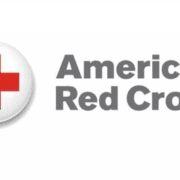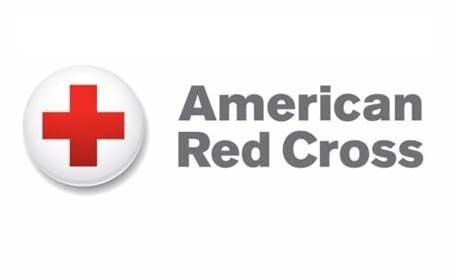Red Cross Offers Safety Tips for Memorial Day, Summertime Activities
Red Cross officials have some safety suggestions for people as they prepare for the Memorial Day holiday – and don’t forget pets as we head into the warmer summer months.
“Summer is a great time of year to get outside and have fun with your friends and loved ones,” said Barry Porter, Regional CEO of the American Red Cross Eastern North Carolina Region. “But there are dangers if you don’t swim, camp or grill properly. We here at the Red Cross want you to have a safe summer and offer these steps you can follow.”
Read the suggestions below whether you’ll be enjoying watersports, camping or grilling.
PET SAFETY
Summer’s heat can be dangerous for your family pets. Follow these steps to take to help ensure your pet stays safe this summer.
- Don’t leave your pet in a hot vehicle, even for a few minutes. The inside temperature of the car can quickly reach 120 degrees even with the windows cracked open.
- Animals can suffer heat stroke, a common problem for pets in the warmer weather. Dogs with short noses or snouts, like the boxer or bulldog, are especially prone to heat stroke, along with overweight pets, those with extremely thick fur coat or any pet with upper respiratory problems such as laryngeal paralysis or collapsing trachea.
- Some of the signs of heat stroke in your pet are heavy panting and being unable to calm down, even when lying down, brick red gum color, fast pulse rate and being unable to get up.
- If you suspect your pet has heat stroke, take their temperature rectally. If the temperature is above 105 degrees, cool the animal down. The easiest way to do this is by using the water hose. Stop cooling the animal when the temperature reaches 103 degrees.
- Bring your pet to the veterinarian as soon as possible as heat stroke can lead to severe organ dysfunction and damage. Download the Red Cross Pet First Aid appfor instant access on how to treat heat stroke, other emergencies and general care for cats and dogs and take the Cat and Dog First Aid Online Training
WATER SAFETY
Every day, an average of 11 people die in the U.S. from unintentional drowning — and one in five of those are children 14 or younger according to the Centers for Disease Control and Prevention (CDC). The Red Cross wants everyone to know critical safety knowledge and skills that could save your life in and around the water. We encourage families to build confidence in the water by learning to be safe, making good choices, learning to swim and how to handle emergencies.
- Preventing unsupervised access to water, providing constant, active adult supervision and knowing how to swim are critical layers of protection to help prevent drowning.
- Classes to learn how to swim are available for both children and adults. Check the map for Learn-to-Swim providers in your community. Everyone should learn first aid and CPR too, so they know what to do in an emergency.
- Download the Red Cross Swim app, sponsored by The ZAC Foundation, for safety tips, kid-friendly videos and activities, and take the free Water Safety for Parents and Caregivers online course in English or in Spanish.
- It’s best to swim in a lifeguarded area. Always designate a “water watcher” whose sole responsibility is to keep a close eye and constant attention on everyone in and around the water until the next water watcher takes over.
- Drowning behavior is typically fast and silent. Unless rescued, a drowning person will last only 20 to 60 seconds before submerging. Reach or throw, don’t go! In the event of an emergency, reach or throw an object to the person in trouble. Don’t go in! You could become a victim yourself.
CAMPING SAFETY
If a camping trip is in your plans, know the level of ability of the people in your group and the environment around you. Plan accordingly.
- Sprains and falls are some of the most common misfortunes travelers may face. Falls are the biggest threat, many due to poor decision-making, lack of skill or not being properly prepared. Dehydration is also a danger. Plan ahead for these dangers.
- Share your travel plans and locations with a family member, neighbor or friend.
- Bring nutritious food items and water, light-weight clothing to layer and supplies for any pets.
GRILLING SAFETY
More than three-quarters of U.S. adults have used a grill — yet, grilling sparks more than 10,000 home fires on average each year. To avoid this, the Red Cross offers these grilling safety tips:
- Make sure everyone, including pets, stays away from the grill.
- Keep the grill out in the open, away from the house, deck, tree branches or anything that could catch fire.
- Use the long-handled tools especially made for cooking on the grill to help keep the chef safe.
About the American Red Cross:
The American Red Cross shelters, feeds and provides comfort to victims of disasters; supplies about 40% of the nation’s blood; teaches skills that save lives; distributes international humanitarian aid; and supports veterans, military members and their families. The Red Cross is a nonprofit organization that depends on volunteers and the generosity of the American public to deliver its mission. For more information, please visit redcross.org or CruzRojaAmericana.org, or visit us on Twitter at @RedCross.


